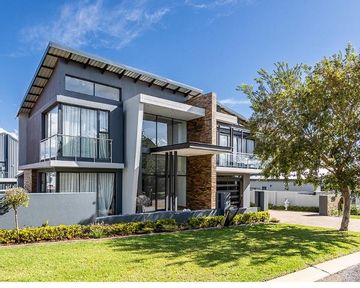A year to homeownership: Your first two months
Are you tired of renting and dreaming of owning your own home? The journey to homeownership begins with careful financial planning and setting a realistic budget. In the first two months of your homebuying adventure, focus on assessing your financial situation, improving your credit score, and establishing a budget that aligns with your homeownership goals. Let's dive into the essential steps to kickstart this exciting journey.
Step 1: Evaluate your finances
Before delving into homeownership, it's crucial to have a clear understanding of your current financial situation. Take stock of your monthly income, expenses, savings, and outstanding debts. Consider factors like job stability and any potential changes in your financial situation in the near future.
Now is the time to do a thorough lifestyle audit to really assess where and when you spend your money. This will not only allow you to see your financial situation clearly but will also help you when you set up your budget. During this step you can also make the necessary changes to curb spending on things you can do without as you prepare for your journey to homeownership - for example, having multiple streaming services is not necessary. Stick to one service that provides the most of what you would like to watch and cancel the rest. During January many people sign up for the gym but a gym membership can be costly, instead consider alternatives to achieving health goals like going for a run with a local running club or investing in a few weights to train at home.
The little splurges will add up in the end and cutting back will ensure that you are in a better financial position and allow you to save up for a bigger deposit.
Step 2: Check your credit score
Your credit score plays a pivotal role in determining your home loan eligibility and interest rates. It is therefore vital that you know what your score is and see where you can improve over the next 12 months to ensure you get the best home loan for your budget.
Obtain a copy of your credit report and check your score. The credit scoring system assigns a number to your profile based on repayment behaviour. The various bureaus have their propriety numbering system, so for this article, we will use 0 to 900. A poor score would be a number ranging from 0 to 680, a fair score would range between 681 and 750 and a good score would be anything higher than 751.
The two most important things that factor into your score are how consistently debt is repaid and the outstanding balance on the current debt. Then things such as a mix of accounts (loans/credit card/cellphones etc), the age of the accounts (how long they have been active), and any newly opened accounts.
Address any discrepancies or outstanding issues that may be affecting your credit negatively. Work towards improving your credit score by paying off debts and making timely payments.
Step 3: Determine your budget
Once you've assessed your financial standing, it's time to set a realistic budget for your home purchase. Consider your monthly income, existing debts, and living expenses. A general rule of thumb is that your home loan payment should not exceed 28-31% of your gross monthly income—factor in additional costs such as property taxes, homeowners insurance, and maintenance.
If you can start a second savings account, separate from your savings account for your deposit, which will be used to cover any unexpected costs of buying a house. This will also allow you to get into a savings mindset which will come in handy once you are a homeowner who needs to create an emergency fund.
Step 4: Set your deposit goals
Decide on the deposit amount you aim to save. While the traditional recommendation is 20% of the home's purchase price, some banks offer 100% home loans. However, be mindful that a larger deposit can lead to lower monthly home loan repayment and may help you secure a better interest rate.
The first two months of your journey toward homeownership are critical for laying a solid financial foundation. By evaluating your finances, improving your credit score, and setting a realistic budget, you're setting yourself up for success in the exciting months ahead. In our next blog post, we'll guide you through months 3-4, focusing on saving for your down payment and closing costs. Stay tuned for more actionable steps on your path to becoming a homeowner!

